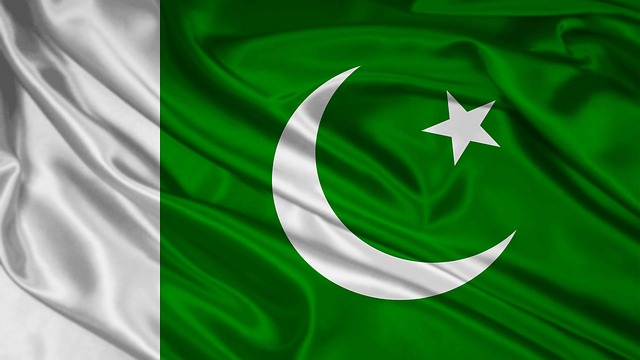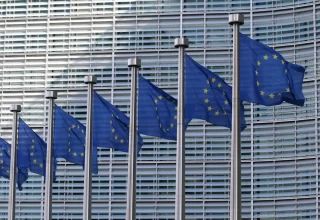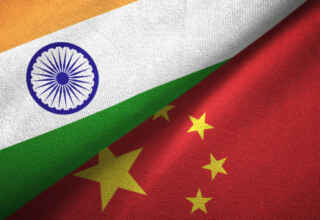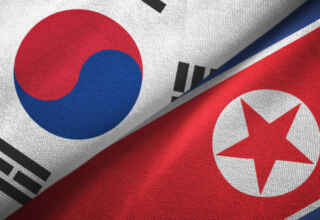
In the aftermath of the recent elections in Pakistan, the political landscape is marked by unexpected developments that have set the stage for complex negotiations. Despite the detention of former PM Imran Khan and the obstacles faced by his Pakistan Tehreek-e-Insaf (PTI), independent candidates aligned with the party secured an impressive 93 National Assembly seats, the highest among all parties. However, this falls short of the 169-seat majority needed to form a government. The Pakistan Muslim League Nawaz (PML-N), led by another former PM, Nawaz Sharif, secured the second position with 75 seats. Despite expectations of a smooth victory, Sharif’s return to power, backed by the influential military, remains unfulfilled. The Pakistan People’s Party (PPP), led by Bilawal Bhutto Zardari, secured the third position with 54 seats.
With the constitutional deadline requiring the formation of a government by February 29, the fragmented mandate leaves no party with a simple majority. Therefore, a coalition government seems inevitable. This might prompt independent candidates who fell short to lodge allegations of vote-rigging in courts, while PTI supporters stage protests at Election Commission offices nationwide. In terms of coalitions several scenarios are possible. The possibility of a coalition between PML-N and PPP, along with smaller parties, emerges as likely. These two parties previously formed an alliance in 2022 to dislodge Khan’s government. However, challenges persist in determining the next prime minister and the distribution of power within provinces.
PML-N is also in talks with the Muttahida Qaumi Movement (MQM), which won 17 seats, and is actively seeking support from independent candidates. Meanwhile, PPP appears to be deliberating its options. It could for example form an alliance with PTI, despite Khan’s media advisor suggesting that PTI might prefer being in the opposition if a majority is unattainable. Khan, currently serving a prison sentence, had earlier expressed reservations about coalition governments. Nonetheless, the nature of these elections has led to calls for a “participatory coalition government,” acknowledging the PTI’s role, even from those who did not support Khan initially.
An alternative suggestion is the merger of PTI-backed independent candidates with a smaller party to accumulate seats and capitalize on the 60 reserved National Assembly seats for women. Notwithstanding this, scepticism persists regarding the PTI’s ability to secure a coalition government, even with alliances, as numerical advantages seem elusive.
As the political drama unfolds, one thing is clear – Pakistan faces a challenging period of negotiations and compromises, with the outcome shaping the nation’s political future and influencing international dynamics. In fact, the situation unfolding is an undesirable one, unwanted by major stakeholders like China, Pakistan’s primary foreign supporter, India, its nuclear-armed neighbour and long-standing rival, and the United States, which, despite diminishing involvement in Pakistan post its withdrawal from Afghanistan in 2021, maintains apprehensions regarding Islamist militancy as a pervasive source of instability in the region and beyond, as per analysts. Additionally, the potential emergence of a feeble and fractured government gives rise to concerns about Pakistan’s ability to implement necessary reforms crucial for securing a crucial new International Monetary Fund program later this year.
However, it is important to note that something emerges clearly from these elections. Mr. Khan’s win demonstrates the strong political presence of his party despite the attempts to marginalise it; this, in turn, highlights people’s discontent with Pakistan’s current political framework. Throughout almost half of Pakistan’s history, direct military rule has prevailed. In instances where civilian governments were permitted, a select few leaders, including Mr. Khan’s election rival, Mr. Sharif, typically ascended to power with the military’s backing. These leaders aligned with the military constructed political parties cantered around family dynasties, passing down their influence through generations.
In these elections a shift has occurred especially thanks to Pakistan’s young population, which constitutes around half of the electorate, and who have through their votes expressed their frustration with the established system, as also proven by the ongoing protests. Therefore, PTI’s win after months of an opposition campaign aimed at undermining the party and his leader may signal a turning point in the generals’ ability to influence Pakistan’s politics. Surely, the short-term result of this will be a prolonged period of instability and uncertainty ensuing the lack of a clear majority and the strong accusations of rigging, which might hinder any government’s claim to legitimacy. Similarly, PTI’s win at the ballot signals people’s discontent with the status quo but it does not necessarily translate into a de facto victory, on the contrary, the possibility of it not raising to power remains concrete. Notwithstanding the uncertainty and the unsure concrete change that will follow, the results of these elections do leave a positive note as to Pakistani’s will to challenge the outdated system that has ruled them so far.
By The European Institute for International Law and International Relations













